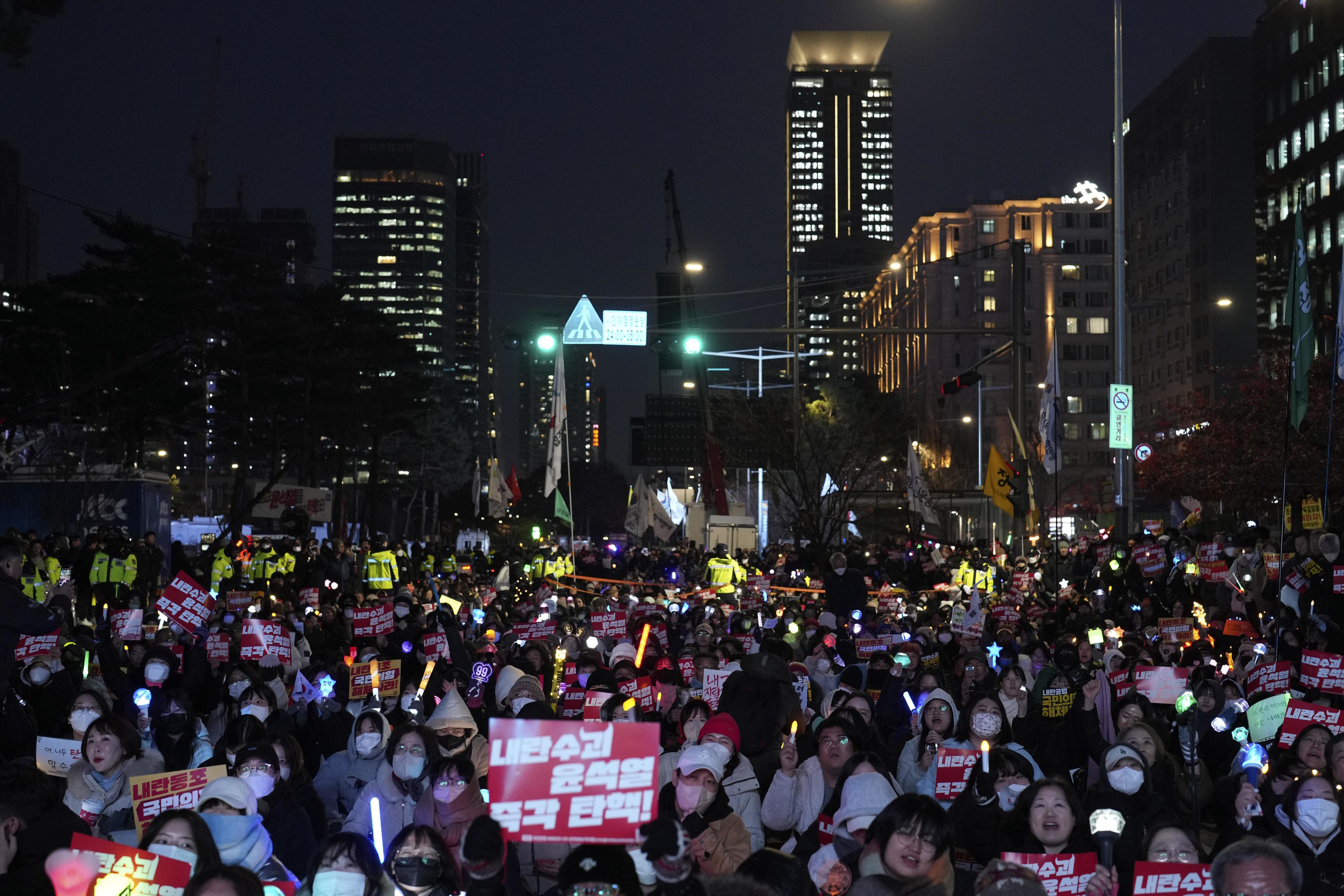The office of the besieged president of South Korea was raided on Wednesday morning as part of a series of police raids that also took place at the headquarters of the national police agency and the building of the metropolitan police in Seoul. The leader, Yoon Suk Yeol, under investigation for a possible "treason" offense, is increasingly cornered after the short-lived martial law he declared last week to take control of the Parliament, suspend legislative activity, and freedom of the press.
The South Korean president maintains immunity from prosecution while in office, but can be arrested on charges of insurrection or treason. On Tuesday, a senior official in the South Korean army stated that Yoon, during the imposition of martial law, ordered him to forcibly remove opposition lawmakers who, despite the military siege, managed to enter the National Assembly and ultimately vote unanimously to lift the authoritarian decree. "The president ordered to break down the doors (of the Parliament), enter, and remove the people inside," stated Lieutenant General Kwak Jong-keun.
Leading this coup operation on the night of Tuesday, December 3, in coordination with the president, was the then Minister of Defense, Kim Yong-hyun, who resigned days later after apologizing for the failed martial law. Kim was arrested on Sunday and formally charged on Tuesday - and a formal detention order was issued - for conspiring with President Yoon, facing a charge of rebellion, which carries a maximum penalty of death.
Investigators suspect that Kim persuaded Yoon to declare martial law and ordered the deployment of troops around the Parliament.
South Korean media, citing sources from the Ministry of Justice, reported that Kim was taken to a hospital last night after attempting suicide but is in stable condition. "Kim was found attempting to hang himself with a rope made from underwear inside a bathroom at the Dongbu Detention Center in Seoul at 11:52 p.m., shortly before a court issued an arrest warrant against him," the ministry statement said.
On Tuesday, South Korean lawmakers in the opposition-controlled Parliament approved a bill to appoint a special prosecutor to investigate the president. A resolution was also passed calling for the arrest of Yoon and seven other "key figures" in the "coup," including the already detained former Defense Minister and the Chief of the General Staff, General Park An-soo, who proclaimed himself "commander of martial law" during its brief implementation.
Yoon, who is prohibited from leaving the country, clings to his position despite pressure from his own party, the ruling People Power Party (PPP), which has stripped the president of all powers, leaving a leadership vacuum as uncertainty continues over this unprecedented political crisis in South Korea's democracy.
Han Dong-hoon, leader of the conservative PPP, announced over the weekend that Yoon will no longer participate in governing the country or in foreign diplomacy, and that it would be the prime minister who would handle these matters. However, this decision has been denounced by the opposition as a "second coup" because it would not be based on any legal grounds. In other words, the PPP cannot unilaterally decide to remove the president, who has not formally resigned, nor has been impeached or arrested.
According to the Constitution of South Korea, the president remains the head of government and commander-in-chief of the army unless incapacitated or resigns. The PPP argues that it is perfectly compatible and legal for Yoon to remain in office while delegating his powers to the prime minister.
Amidst all this chaos, the opposition is presenting a new motion of censure this Wednesday to be voted on next Saturday. President Yoon recently survived an impeachment after his party's boycott, which does not want their rivals to take credit for toppling the president, a move that would also lead to new elections where, as all polls indicate, liberal parties would sweep.
In recent hours, several parliamentarians from Seoul have also accused Yoon of conspiring to provoke North Korea and thus have a solid justification for declaring martial law. In October, Pyongyang denounced that several drones from the South Korean army flew over the North Korean capital and threatened harsh retaliation. "This was part of Yoon's plan to have a pretext and impose martial law," opposition sources denounce citing military sources.
NORTH KOREA SPEAKS OUT FOR THE FIRST TIME ON THE SOUTH KOREAN CRISIS
Although President Yoon tried to put North Korea in the spotlight by stating last week that he declared martial law because the opposition had a plot with Pyongyang to overthrow him, the political crisis unleashed in Seoul became solely an internal matter. The regime of Kim Jong-un, detached from the political turmoil of its neighbor, had remained on the sidelines, not even making a statement. Until now.
"The puppet Yoon Suk Yeol, who had already faced a serious government crisis and impeachment, unexpectedly declared martial law and unleashed the weapons of the fascist dictatorship against the people," a statement released on Wednesday by the North Korean state agency KCNA said.
This has been the first public comment from North Korea on martial law and Yoon's performance, who stated last week that the decree was to eradicate "pro-North Korean and anti-state forces" from the Parliament.
